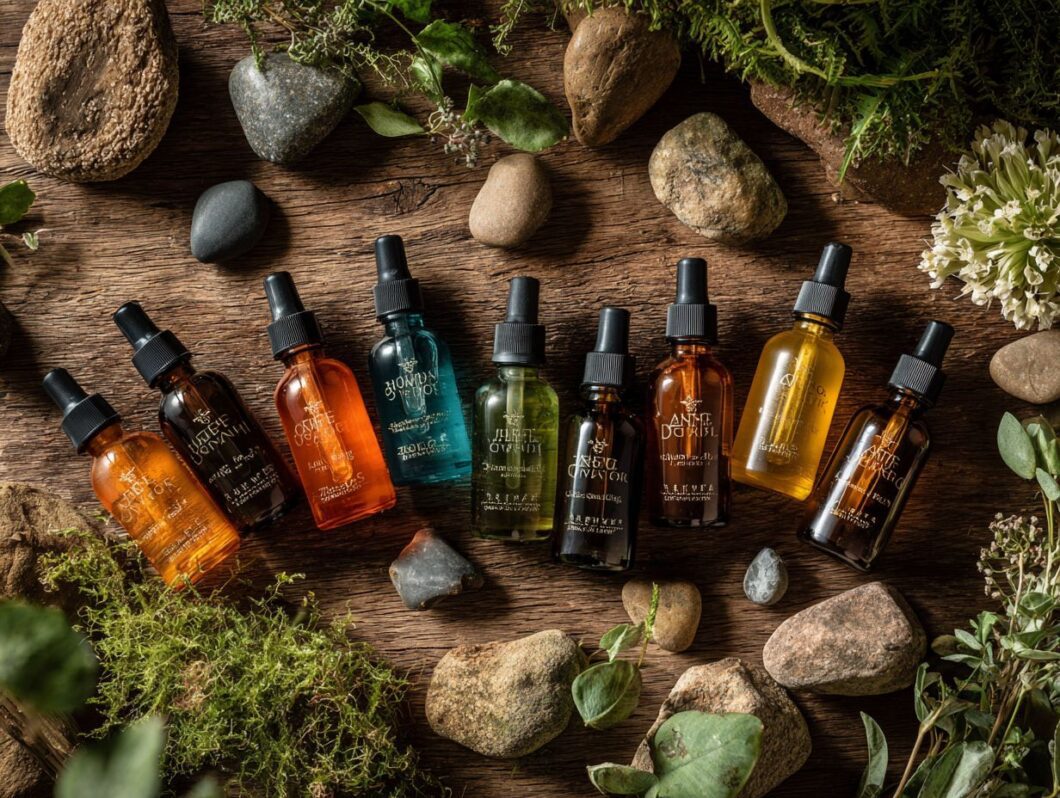Unlock radiant skin with the best face oils for every skin type. From hydrating coconut oil to nourishing argan oil, including the moisturizing properties of sunflower oil and neem oil, the right oil can transform your skincare routine while contributing to skin health. Brands like NOTO are leading the way with formulations that cater to diverse needs, including the lightweight benefits of grapeseed oil, the rejuvenating properties of rosehip oil, and the anti-aging effects of marula oil, which enhance collagen production and improve skin quality. Discover how to choose the perfect blend for your unique skin, ensuring a glowing complexion year-round.
Key Takeaways:
Benefits of Using Face Oils
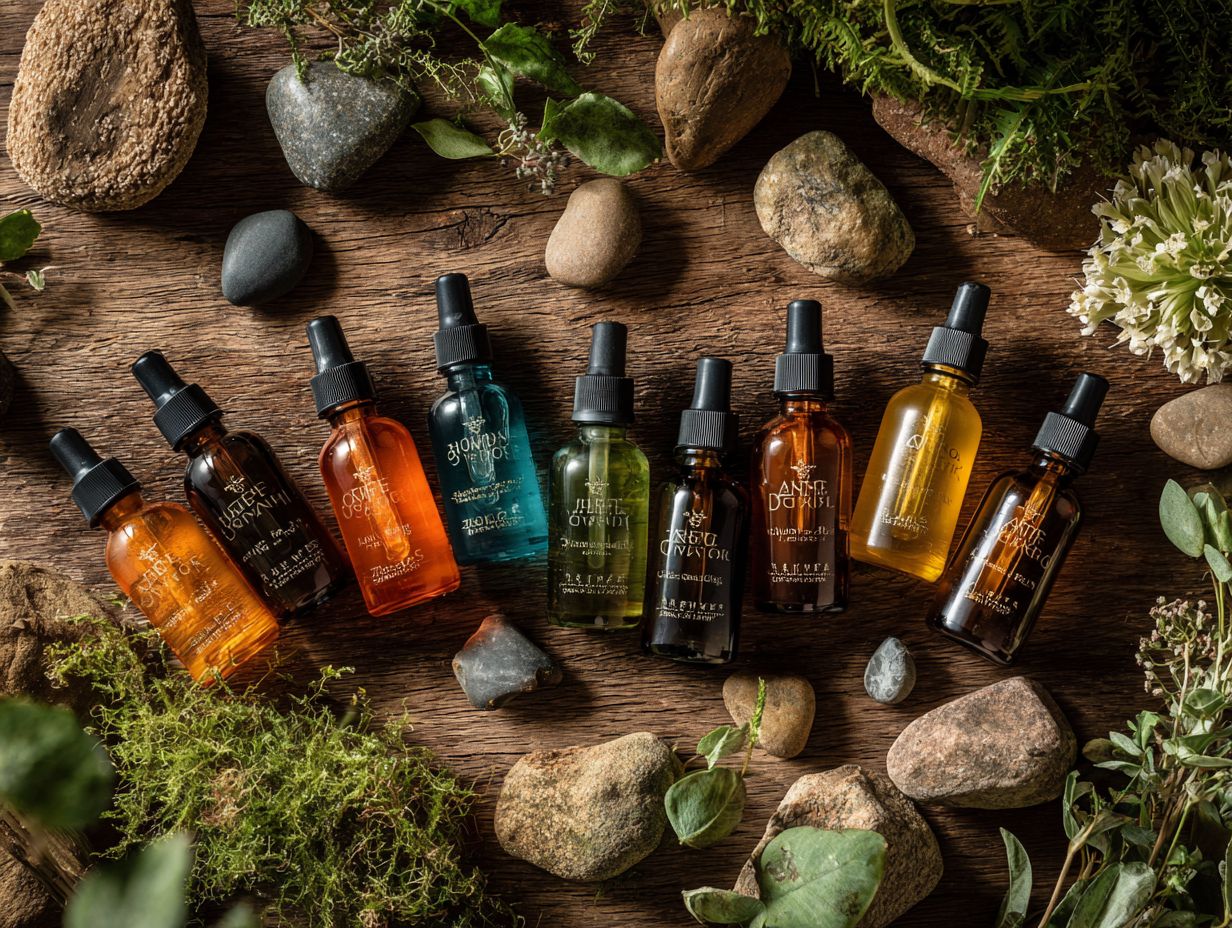
I’ve found that face oils can significantly enhance skin health by effectively locking in moisture, improving skin elasticity, and supplying essential fatty acids and antioxidants derived from natural ingredients such as organic oils.
Among the various options available, I have noticed that olive oil offers a substantial hydration boost, particularly beneficial for those with dry skin. Oils rich in vitamin E, such as argan oil, provide robust antioxidant protection, which is essential for combating environmental stressors and improving skin quality.
For individuals with acne-prone skin, I recommend non-comedogenic oils like grapeseed oil, as it hydrates without clogging pores, alongside the acne reduction benefits of neem oil. Additionally, the anti-aging properties of rosehip oil promote skin regeneration and help with hyperpigmentation.
Lastly, shea butter is not only an excellent moisturizer but also strengthens the skin barrier and supports sustainable harvesting practices, making it a top choice for overall skin health and positive change.
Understanding Skin Types
I recognize that understanding my skin type is essential for selecting the appropriate face oils that effectively address my unique needs and concerns.
Identifying Your Skin Type
To identify my skin type, I conduct a straightforward test by washing my face and monitoring how my skin feels after an hour. I start by cleansing my face with a gentle cleanser, ensuring that all makeup and impurities are removed.
After washing, I allow my skin to rest for one hour without applying any products.
After the hour has passed, I evaluate my skin’s condition. If my T-zone is shiny and feels greasy, I likely have oily skin. If my cheeks feel tight or flaky, I may have dry skin. For those who notice a bit of shine but overall comfortable skin, they are likely normal or have combination skin.
For a more detailed analysis, I recommend taking the Skin Type Quiz on Dermalogica.
How Skin Type Affects Oil Selection
Different skin types necessitate tailored oil selections to optimize benefits and minimize adverse effects.
For my oily skin, I find that lightweight oils like jojoba and grapeseed are ideal, as they provide hydration without clogging my pores. Conversely, for those with dry skin, richer oils such as marula or avocado are more suitable, offering deeper moisturization.
For instance, I recognize that applying a heavy oil on oily skin can lead to breakouts, while using a lightweight oil on dry skin may result in flakiness. It is essential for me to identify my skin type before selecting an oil to ensure the best results and avoid common pitfalls.
Best Face Oils for Oily Skin
I recognize that oily skin necessitates the use of specific oils that provide hydration without clogging pores, contributing to a balanced complexion.
Key Ingredients to Look For
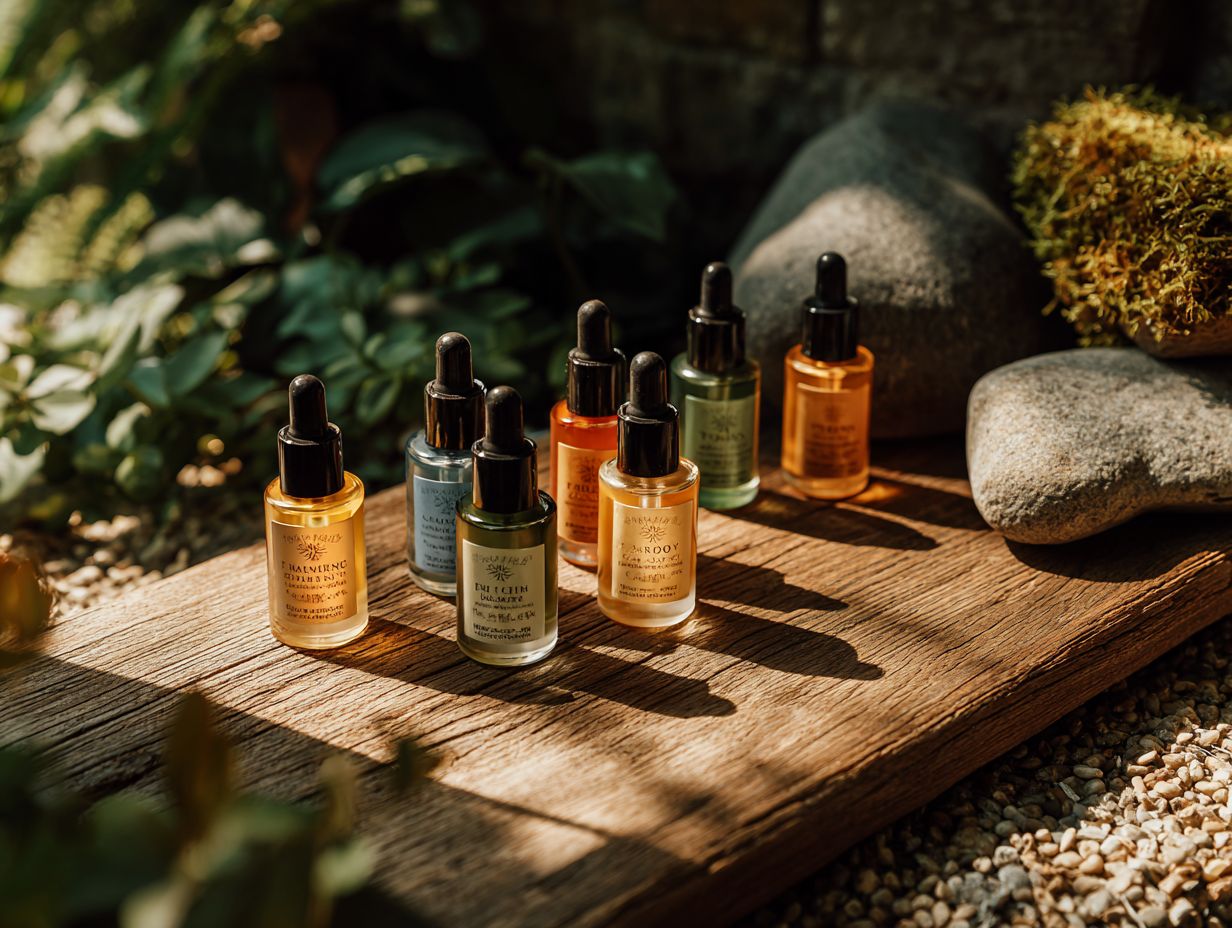
When selecting oils for oily skin, I focus on key ingredients such as antioxidants, essential fatty acids, and non-comedogenic properties. For instance, I often consider jojoba oil, as it closely resembles skin sebum and effectively balances oil production. Grapeseed oil is another excellent option due to its high linoleic acid content, which aids in reducing clogged pores.
I also value rosehip oil for its rich antioxidant profile, which promotes healing and helps minimize scars. Products like The Ordinary’s 100% Organic Cold-Pressed Rose Hip Seed Oil and 100% Pure Jojoba Oil from Leven Rose effectively incorporate these beneficial ingredients, providing hydration without contributing to excess oil.
Incorporating a combination of these oils into my skincare routine can help manage shine and enhance overall skin texture.
Top Recommended Oils
I recommend the following top face oils for individuals with oily skin:
- Jojoba oil
- Grapeseed oil
- Tea tree oil
Jojoba oil, priced at $15 for 30ml, effectively balances oil production, making it an excellent choice for those with oily skin types. Grapeseed oil, available for $10 for 30ml, is lightweight and hydrating, providing moisture without the risk of clogging pores. Tea tree oil, at $12 for 15ml, offers powerful anti-inflammatory properties, which can be beneficial in reducing acne flare-ups.
Incorporating these oils into a skincare routine can significantly enhance hydration and soothe the skin, delivering both nourishment and balance.
Best Face Oils for Dry Skin
I find that dry skin greatly benefits from rich, nourishing oils that offer hydration and improve moisture retention.
Hydrating Ingredients
When selecting face oils for dry skin, I prioritize key hydrating ingredients such as fatty acids and vitamins that enhance skin elasticity. One exceptional option is Marula oil, which is rich in oleic acid and penetrates deeply into the skin to provide lasting hydration.
Olive oil is another excellent choice, as it is packed with vitamins A, D, and E, which nourish and protect the skin barrier. For intense moisturizing, I find that shea butter is unmatched; it offers a thick protective layer while improving elasticity.
I also appreciate popular products like The Ordinary’s 100% Organic Cold Pressed Moroccan Argan Oil, which effectively incorporates these beneficial ingredients and has been proven to enhance skin texture and moisture levels over time.
Top Recommended Oils
I recommend several face oils for dry skin, including marula oil, olive oil, and sunflower seed oil, each with its own unique benefits.
Marula oil, priced at around $25 for 30ml, is rich in antioxidants that promote skin elasticity and reduce inflammation. Olive oil, available for about $15 for 50ml, deeply hydrates the skin while providing essential fatty acids that nourish the skin barrier. In contrast, sunflower seed oil, which costs approximately $10 for 30ml, is lightweight and easily absorbed, making it an excellent option for layering under makeup.
For optimal results, I suggest mixing a few drops of marula oil with your daily moisturizer or using sunflower seed oil in the morning to achieve a fresh, dewy complexion.
Best Face Oils for Combination Skin
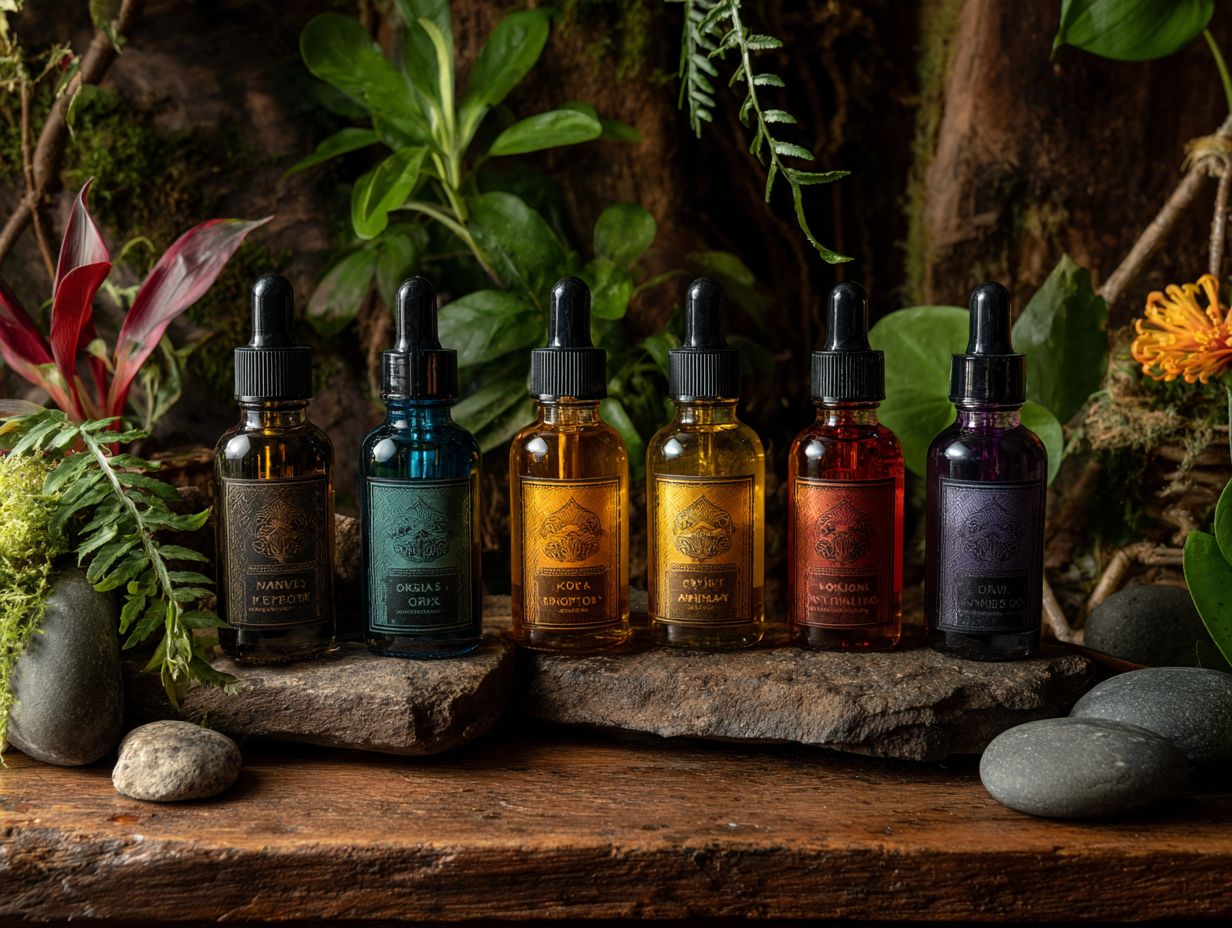
I find that combination skin necessitates the use of face oils that effectively balance hydration, catering to both dry and oily areas.
Balancing Properties
I recommend selecting oils with balancing properties that hydrate without clogging pores, such as jojoba and rosehip oil. These oils are particularly effective for various skin types, especially oily and combination skin.
Jojoba oil closely resembles the skin’s natural sebum, which helps regulate oil production while delivering essential moisture. On the other hand, rosehip oil is rich in omega fatty acids and antioxidants, providing hydration while promoting cell regeneration and reducing the appearance of scars.
For optimal results, I suggest applying a few drops of each oil after cleansing. This approach will help maintain balanced and radiant skin throughout the day.
Top Recommended Oils
The top oils for combination skin that I recommend include jojoba oil, rosehip oil, and squalane, all of which are known for their balancing effects.
- Jojoba oil, priced at $15 for 30ml, closely resembles the skin’s natural sebum. This makes it an excellent choice for moisturizing without the risk of clogging pores.
- Rosehip oil, available for $18 for 30ml, is rich in vitamins A and C, which promote skin regeneration and help reduce the appearance of scars.
- Squalane, which costs $20 for 30ml, is lightweight and provides deep hydration, making it ideal for locking in moisture, particularly in drier areas.
I suggest incorporating these oils into your routine by applying a few drops after cleansing, focusing on areas that require additional hydration. This approach can help achieve a well-balanced complexion.
Best Face Oils for Sensitive Skin
I recognize that sensitive skin necessitates the use of face oils formulated with gentle, calming ingredients.
This approach helps to prevent irritation while ensuring adequate moisture is provided.
Gentle Ingredients
I prioritize gentle ingredients such as chamomile extract and calendula oil in my skincare regimen, as they are well-known for their soothing properties. Plus these, I also incorporate aloe vera for its hydrating benefits and anti-inflammatory effects.
Another valuable addition is jojoba oil, which closely resembles the skin’s natural sebum, effectively maintaining moisture without clogging pores.
I appreciate brands like Burt’s Bees that offer products combining these beneficial ingredients, making them ideal for sensitive skin. By establishing a skincare routine that includes a gentle cleanser, a soothing serum featuring these elements, and a hydrating moisturizer, I can significantly enhance my overall skin health and comfort.
Top Recommended Natural Oils and Skincare Elixirs
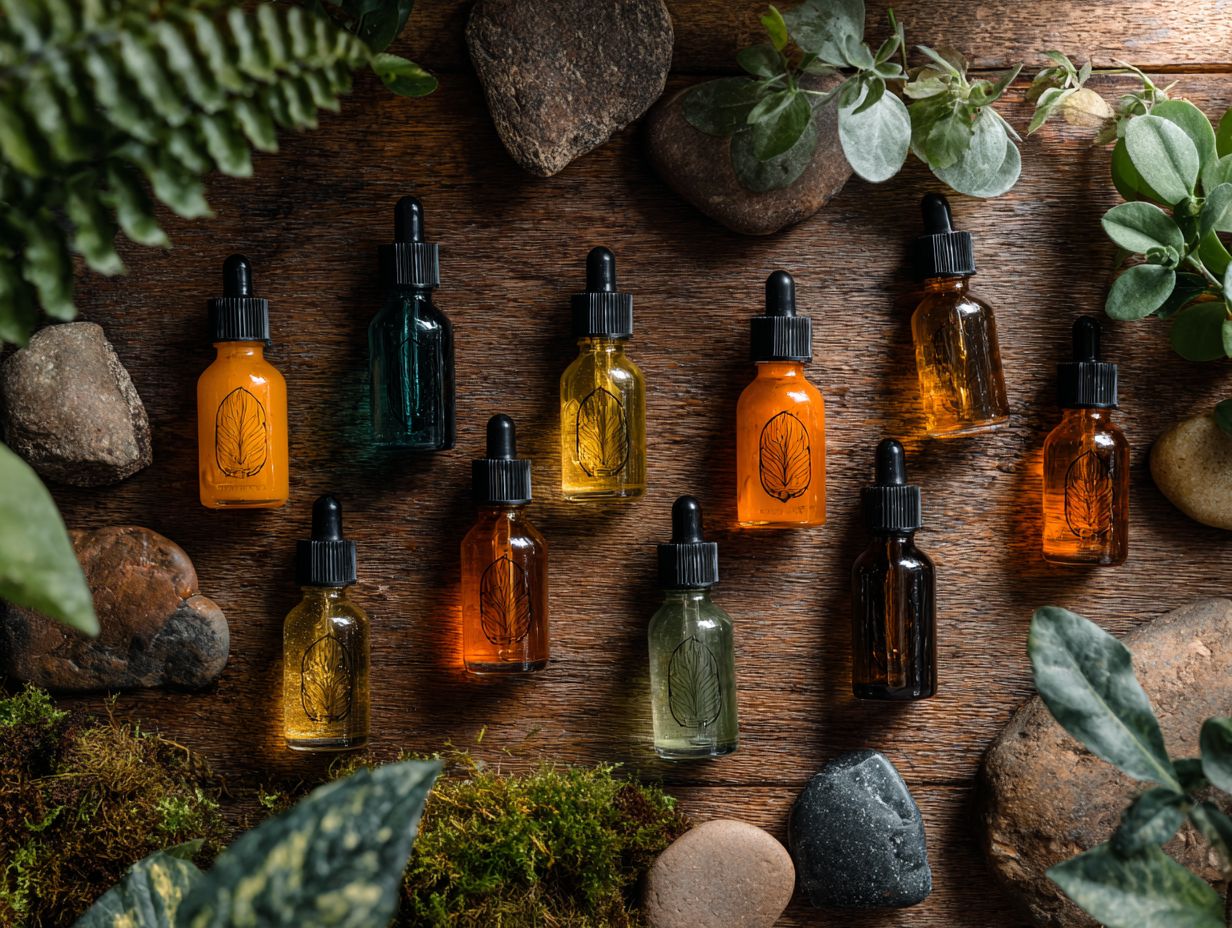
For those of us with sensitive skin, I recommend moisturizing oils such as calendula oil, hemp seed oil, and argan oil, as each provides gentle and effective care, enhancing skin barriers.
Calendula oil, priced at $20 for 30ml, is well-known for its soothing properties, making it an excellent choice for addressing irritation and redness.
Hemp seed oil, which costs approximately $15 for 30ml, is particularly effective at balancing moisture levels without clogging pores, making it ideal for preventing dryness.
Argan oil, available for $18 for 30ml, is rich in vitamins such as vitamins A, D, E, and K that nourish and hydrate the skin, offering essential skincare benefits.
Incorporating these oils into my skincare routine can lead to significant improvements in texture and comfort, especially when applied after cleansing or mixed into my moisturizer, creating a perfect base for facial serums.
Frequently Asked Questions
What are the best vegan facial oils for every skin type?
The best face oils for every skin type include argan oil for dry skin, jojoba oil for oily skin, rosehip oil for combination skin, and grapeseed oil for sensitive skin.
Can I use face oils if I have acne-prone skin?
Yes, face oils can actually be beneficial for acne-prone skin as long as you use non-comedogenic oils like tea tree oil or evening primrose oil, ensuring facial oil compatibility.
How do I incorporate face oils into my skincare routine?
You can use face oils as a moisturizer by applying a few drops to your face after cleansing and toning. You can also mix a few drops into your moisturizer for added hydration.
Do face oils clog pores?
Some face oils can clog pores, so it’s important to choose non-comedogenic oils and to patch test on a small area of your skin before using them on your face.
Is there a specific time of day to use face oils?
You can use face oils in the morning or at night, depending on your preferences. However, using them at night can allow them more time to absorb into your skin and provide deep hydration.
Can I use face oils under makeup as a primer?
Yes, face oils can act as a primer for your makeup and provide a smooth and hydrated base for foundation or powder. Just make sure to let them absorb into your skin for a few minutes before applying makeup on top, leveraging fair trade certified oils to drive positive change.


